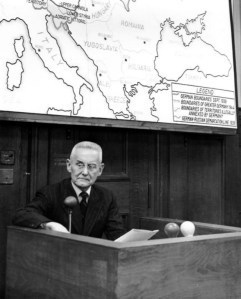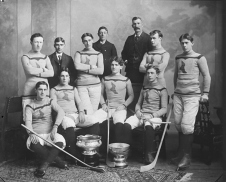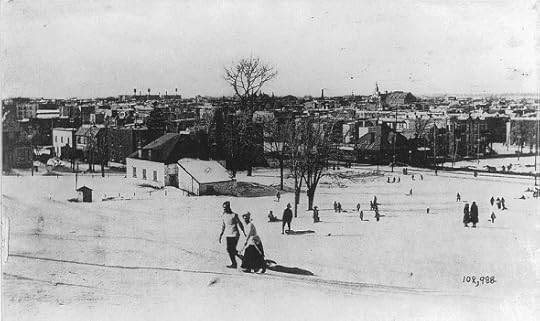How to start a novel
Dostoevsky’s notes for chapter 5 of “The Brothers Karamazov”
“The world is very big.”
Writer and musician Stephen Hastings-King (SHK) said this in a recent discussion on Fictionaut titled “starting a novel” that was begun by Tyler Findlay (TF). I made some observations that I wish to recycle here. I’ve done this before. Before my antics begin to tire you, by all means go to the forum to see the entire discussion.
MS: I am also very interested in the question of “how to start a novel” though after writing a couple of these beasts, I am less confident that there are any ready-made answers. Still you are asking about experiences, and I’ve got some:
TF: How do you begin a piece?
MS: if by “piece” you mean “flash fiction” then the answer is that it mostly comes to me pretty much in one piece like a poem might come to the poet or an image to the painter. If by “piece” you mean “novel”, my answer would be: very, very slowly, returning to the same crossroads many, many times, so many times in fact that I often feel these days as if I’m chasing my own fictional tail. For me, a novel isn’t just a slice of life —that’s how I look at flash — but it’s life itself, which is why every single confusion, dead end and wrong start that you experience every day is mirrored in the process of composing the novel. However, call it unfortunate or call it fortunate, there is no shortcut to the serious novel I believe. I’ve made a few attempts in the direction of genre writing and it feels different: much more like walking down a road better known in a group of characters more familiar than in the case of the serious novel.

Erectile outlines: Former German general Halder at the Nuremberg trials 1945.
TF: Do you erect extensive outlines?
MS: I didn’t used to do this and the result was that I would create interesting characters galore and wonderful, arresting scenes and begin to dream of possible paths and plots and endings, but I would never finish. After months of bliss for writing I’d end up with a bundle of golden tangents but not with a story, not with a novel. Hence now I linger a lot longer before beginning the writing process in earnest. Though I may write individual scenes if they come to me. But the writing proper begins only after I have created an extensive outline. This way of working is still somewhat new to me. It feels a lot less creative at times and a lot craftier but it keeps the whole together. I don’t know any other way to do this unless you don’t care about narratives. If you write junk or experimental novels obviously all of this does not apply to you…
TF: …Or does it flow freely?
MS: in between writing the outline and editing first draft it does flow freely, it must or else why do it?
TF: What am I failing to wrap my mind around to get from point A to point B?
MS: the purpose of the outline that I’m talking about is to indicate or say, rather, as specific as possible, how your characters get from A to B. That’s the whole point. There’s nothing more to it and nothing less, alas. I can’t say that it’s easy for my creative temper to follow this path. However, having written many hundreds of flash stories I feel that I have exercised the devil of short ends and can now begin to wrestle with the devil of the long road.

Pick a POV. Play with it. Serious writers grow a moustache and win awards.
Which POV?
MS: I agree with David [Ackley]‘s statements, too. Though Henry James’s third person, I believe, is mostly omniscient, while Kafka’s, e.g. is close 3rd, i.e. the narrator follows the main protagonist. Close 3rd has the advantage that it can be turned into a first-person POV without effort. Personally, I write in yet another 3rd person POV right now: you can find it in the first half of Dostoyevsky’s “The Idiot” and many of his other novels as well as in Flaubert: it’s a POV where the reader only ever stays with the protagonist but does not know what the protagonist thinks or feels. Instead, everything that happens has to be shown and must not be told. Dostoyevsky make this work by using dialogue like nobody else: you can get lost in his dialogue, it’s a trance transporter… anyway, I’m not finished with the POV problem myself. Sometimes I think it doesn’t matter greatly because these days you can change POV and the readers will forgive you. However, your story may not.
Enter SHK from left. SHK wears goggles. He looks at you suspiciously with the green, penetrating eyes of the “formalist” (his term for himself). He responds, ending with the line: ”Everything is political.”
Some popes were hilarious, too
MS: It’s interesting that you Stephen (Hastings-King: “Everything is political.”) put your statements into 2nd person while I (“Wrestling with devils”) pour forth in the 1st person.
At the same time, we’re both academic scholars. But my heart isn’t in it to be frank. One reason for this is that I abhor pontification (must be because I am Catholic), another that I have come to think that this business of writing is so exquisitely so exclusively and extremely subjective that you may just as well call it dreaming. That this business of writing is also a business with an audience makes the whole affair perfectly paradoxical.
You see (going into 2nd person here as I have begun to pontificate myself…), writing novels for me is giving an expression to the collective unconscious as well as my personal unconscious. There are all kinds of things in the unconscious, of course, revolution (SHK: “It’s a good time to blow up this novel business”) being one of them. But also myth-making, a form of weaving that must go on for thousands of years or else it is fast food and evaporates (SHK: “And what is writing beyond making figures?”).

“I lived in that story, I inhabited it like a shell.”
To me the telling of long stories is something that I feel in my bones and under my skin not just for philosophical reasons but because my dad told me a long, long story when I was a boy, every night, for years on end. I lived in that story, I inhabited it like a shell. It’s my beginning, or one of them, this is where I started and this is where I’m still going when things are rough and when I’m lost (Like this: “Paralysis, deterioration, a slow pathetic fade into a self-imposed shadow world.”—SHK).
Wanting to preserve the novel is silly, just as silly as wanting to preserve the moon. Wanting to write novels as a continous dream building on rock-solid narratives, easy concepts for any one human to wrap themselves in, is not silly. It’s the most serious game that can be played. Creation through causation to bring light to the poor shadows that are real for you, for me.
Everything is spiritual.
[image error]
Gaston Bachelard: “The words of the world want to make sentences.”
Later, I thought that I could have said “everything is personal”. Fortunately, Fictionaut’s forum engine does not allow editing and revising after submitting an entry. Also, somehow, I felt bad for sort of equating “academic writing” with “pontification”, so I added:
MS: the best academic writing isn’t pontification of course, it’s not any less exciting and rebellious and respectful of the spirit as the best novels. Some examples: Sebald (“On The Natural History of Destruction“), Girard (“Deceit, Desire & The Novel“), Bachelard (“The Poetics of Reverie“), everything written by Sigmund Freud, etc etc
SHK (at the end of a longer reply):
“[...] I still want to blow things up. I still am driven by a sense of the political. But mostly, I like to walk around. The world is very big.”
I don’t think the case for the novel can really be made more succinctly. It made me want to take a walk (which is also when I’m dictating my best work):
MS: [...] And I’ve also begun to walk around. I used to want to construct the world now it feels as if I’m being constructed by the world.
Some people always have to have the last word.

Walking around in the snow. Why not do it now?
…The debate continues at Fictionaut now including some expert POV playing and use of footnotes as well as footnotes to footnotes by Matthew J Robinson.




